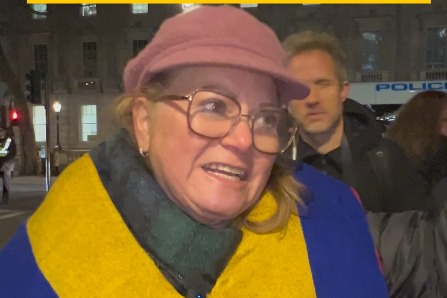Johnson claims election victory and mandate for EU departure
Clash seems inevitable as Scotland will seek second independence referendum

Their decisive win in the United Kingdom's general election means the Conservatives will dominate the next Parliament and leader Boris Johnson will quickly push through the country's divorce from the European Union.
Labour faced up to its worst election results in 84 years, while the Conservative Party celebrated its largest majority since Margaret Thatcher's landslide in 1987. Having lost 59 seats, leftist Labour leader Jeremy Corbyn said he will step down early next year.
The Conservatives' parliamentary majority was won with a big swing of votes from Labour to the Conservatives in areas of Britain that voted to leave the European bloc in the 2016 referendum.
Johnson's message to "get Brexit done", repeated over and over, appears to have resonated with a public that had become weary of the lack of resolution over Britain's scheduled departure from the EU. Johnson repeatedly stressed the prospect that a government led by Labour might lead to another referendum on whether to leave the EU.
The relentless Conservative message was more focused than Labour's, and eventually secured the breakthrough needed to push through Johnson's Brexit plan.
Corbyn's strategy of trying to retain Labour support by remaining ambiguous about whether the party was a pro-Remain or a pro-Leave EU party backfired badly.
Analysis by polling expert John Curtice, a professor of politics at Strathclyde University in Scotland, showed Labour's vote fell on average by more than 10 points in the most pro-Leave areas and its vote fell by more than six points in the most pro-Remain ones.
He said the party had lost ground heavily in its traditional working-class heartlands and that the bond between Labour and its base is now badly strained.
In a dramatic outcome in Scotland, the Scottish National Party, or SNP, won 48 of Scotland's 59 seats in the UK Parliament, and will now seek to hold a second independence referendum-a ballot to which the Conservatives are strongly opposed. A constitutional clash between the Scottish and UK governments now seems inevitable.
Corbyn became increasingly unpopular through the election campaign, but there was also little enthusiasm for Johnson, though his leadership ratings remained substantially higher than Corbyn's throughout the campaign.
Corbyn blamed the "polarizing" Brexit debate for Labour's dismal electoral showing, as he confirmed he would not lead the party into another general election campaign.
The deep divisions within Labour erupted in response to the dismal results. Moderate figures within the party, such as former shadow cabinet members Ed Balls and Alan Johnson, pointed the blame on Corbyn's "disastrous" leadership and Brexit as the defining reasons for their catastrophic electoral defeat.
Labour activists on Corbyn's side argued that the party only performed badly in the election because of their backing of a second referendum, while shadow cabinet member John McDonnell said Brexit had proved to be the party's downfall.
Speaking on ITV News, the former home secretary and Labour dignitary Alan Johnson attacked the party leader, saying: "Corbyn has been a disaster on the doorstep. Everyone knew that he couldn't lead the working class out of a paper bag."
He also accused Momentum, the grassroots organization that supports Corbyn's left-wing brand of politics, of peddling "student politics". He added: "I want them out of the party. I want Momentum gone. Go back to your student politics and your little left wing."
Although the Conservatives' success means that Britain will now likely to leave the EU at the end of January, it seems unlikely to end the debate about Britain's relationship with the EU. Fewer than half of all voters, 46 percent, backed the Conservatives or the Brexit Party-the two parties in favor of leaving the EU without another referendum.
Ultimately, the lack of a strong pro-Remain alliance between Labour and the Liberal Democrats proved costly for both. The Lib Dems gained in the overall vote share, up to 11.5 percent from 7.4 percent seen in the last election, but claimed just 11 seats, one down from the 12 secured in 2017, after campaigning to revoke the Brexit process entirely without a second referendum. The leader of the Lib Dems, Jo Swinson of Scotland, stepped down after losing her seat to an SNP rival by just 149 votes.
The Conservatives took 43.6 percent of the total vote share to claim victory, while Labour claimed 32.2 percent, the SNP 3.9 percent and the Greens 2.7 percent.






























